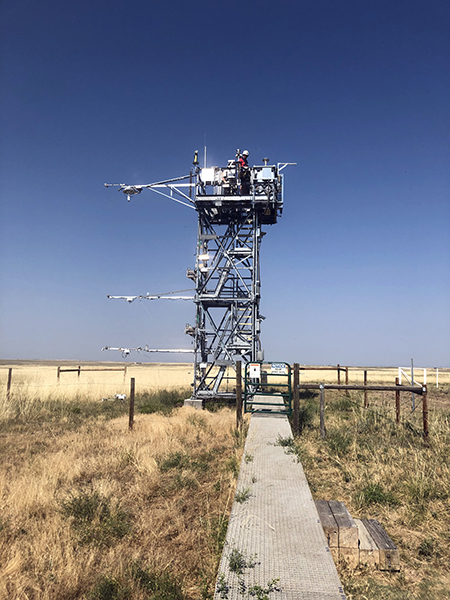Sonia Kreidenweis, Paul DeMott co-lead $12.5 million NSF aerobiome project
Several researchers from the Walter Scott, Jr. College of Engineering will study microbes in the air, or the aerobiome, as part of a new $12.5 million National Science Foundation project.
The Biology Integration Institutes: Regional OneHealth Aerobiome Discovery Network, or BROADN – including atmospheric scientists, agricultural biologists, microbiologists and sociologists from across Colorado State University – aims to improve our fundamental understanding of the aerobiome during this five-year project.
The aerobiome plays an important role in human, animal, plant and overall ecosystem health. Bacteria in clouds can even influence precipitation, but we don’t yet understand how weather, seasons and environmental stresses such as drought, agriculture and fire affect these microorganisms in the air.
BROADN plans to gather enough data through their joint effort to inform predictive models and mitigation strategies for problems as critical as the airborne transport of pathogens.
Read the full Source article, “Atmospheric scientists, engineering faculty co-lead $12.5 million NSF aerobiome project.”
Photo at top: Russell Perkins examines instruments atop a tower at the Central Plains Experimental Range, one of the NSF NEON sites University Distinguished Professor Sonia Kreidenweis and Senior Research Scientist Paul DeMott’s group will use for the BROADN project.



